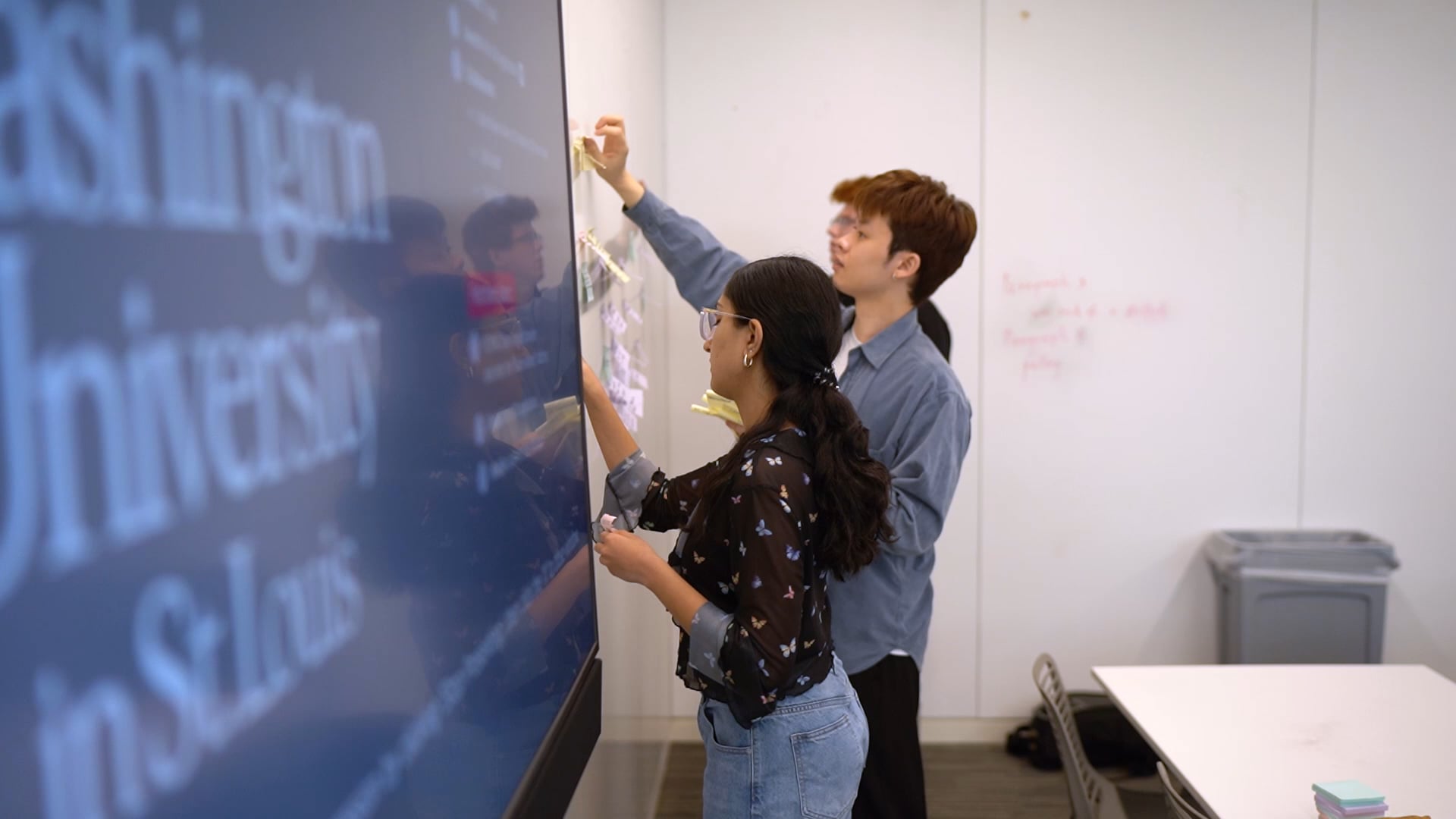MDes Curriculum

Created for students from various backgrounds and accredited by the National Association of Schools of Art and Design, the Master of Design for HCI and Emerging Technology emphasizes robust product design and development skills in parallel with critical thinking, speculation, collaborative problem-solving, and entrepreneurship.
Students in the MDes program will advance their team-building and leadership capabilities in a project-based environment that mirrors real-world industry practices, preparing them to lead the next phase of digital transformation.
At the core of the program is a continuous, collaborative, interdisciplinary studio that is amplified by additional studios, seminars, and electives from across WashU. Courses provide a balance of foundational technical skills necessary to design digital products, interfaces, and experiences with contemporary and emerging technology.
Students learn how to lead design teams that develop solutions to narrow and focused problems with large-scale implications.
Degree Requirements

Interaction, Innovation, Impact Studio (Ix3)
In the Ix3 Studio, the foundation of the MDes curriculum, students conduct long-term, thematic, and collaborative research. The course is taken continuously over the four semesters of the program. Led collaboratively by design and engineering faculty and built from their research expertise, the lab partners with researchers, communities, and organizations in the St. Louis region in seeking socially innovative and impactful digital experiences. Students will conduct user research and develop end-to-end design solutions that improve experiences with partners’ existing technology or propose new solutions that elegantly address complex problems.
Design, Engineering, and Technology Studios
In these studio courses, students will hone the foundational skills necessary for digital product design methodologies. They will build on front-end and back-end design skills, apply systems and craft to new interfaces like wearables, practice programming, and develop prototypes.
Studios include:
- UX Research Methods
- Design Principles for Interaction
- Designing with AI
- Design for Emerging Technology
- Programming Usable Interfaces
- Human-Computer Interaction Methods
History, Ethics, and Leadership
Coursework in the MDes program recognizes the importance of thinking through a product’s life cycle and impact on society. Students will pursue novelty — What could we do? — with a commitment to responsibility — What could go wrong? Then, they will facilitate the adoption of new products built with those values through entrepreneurial leadership.
Courses include:
- What Could Go Wrong
- Critical Approaches to Technology Solutions
- Design Leadership
Electives
MDes students will be able to customize their curriculum with elective courses from across WashU.
Sample electives include:
- Digital Game Design
- Textile-based Technology for Health
- Lost in Space: Media Art and Immersive Environments
- Creative Programming and Rapid Prototyping
- Design in Social Systems
- Race and Design
- Visualizing the American City
- Technology for the Common Good
- Identity and Culture in the Digital Age
- Making is Breaking: Hackers and Hacker Cultures
- Business Planning for New Enterprises
